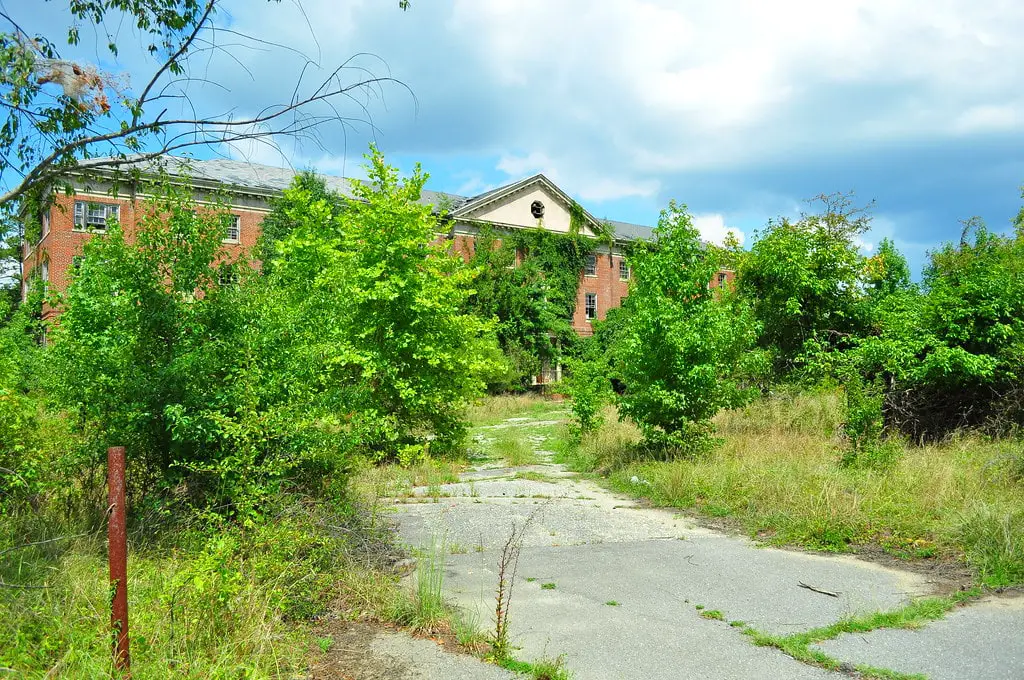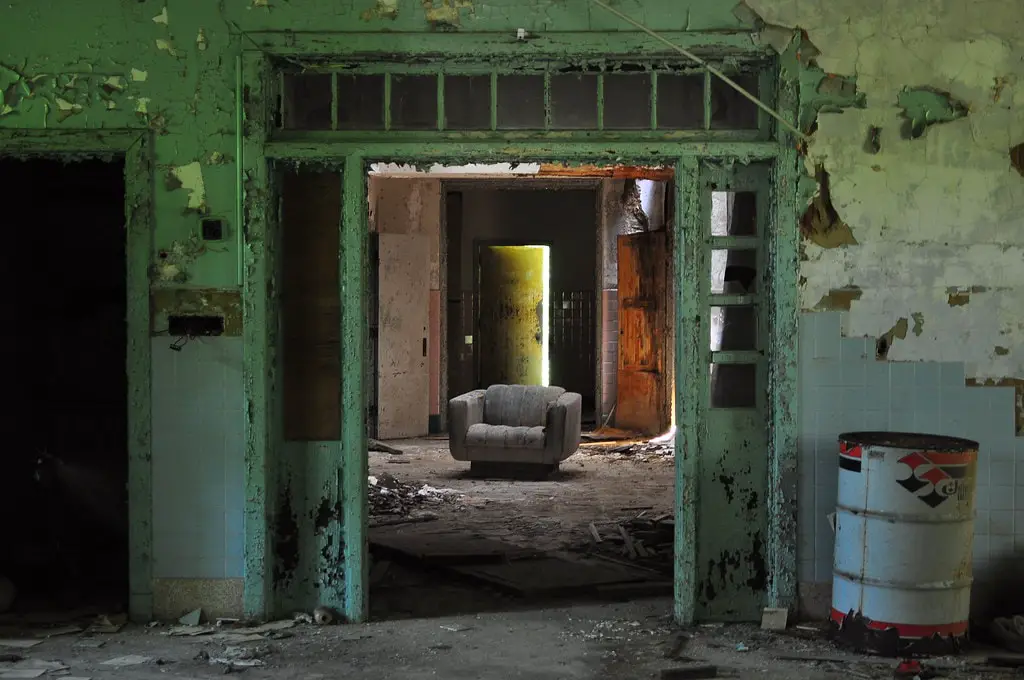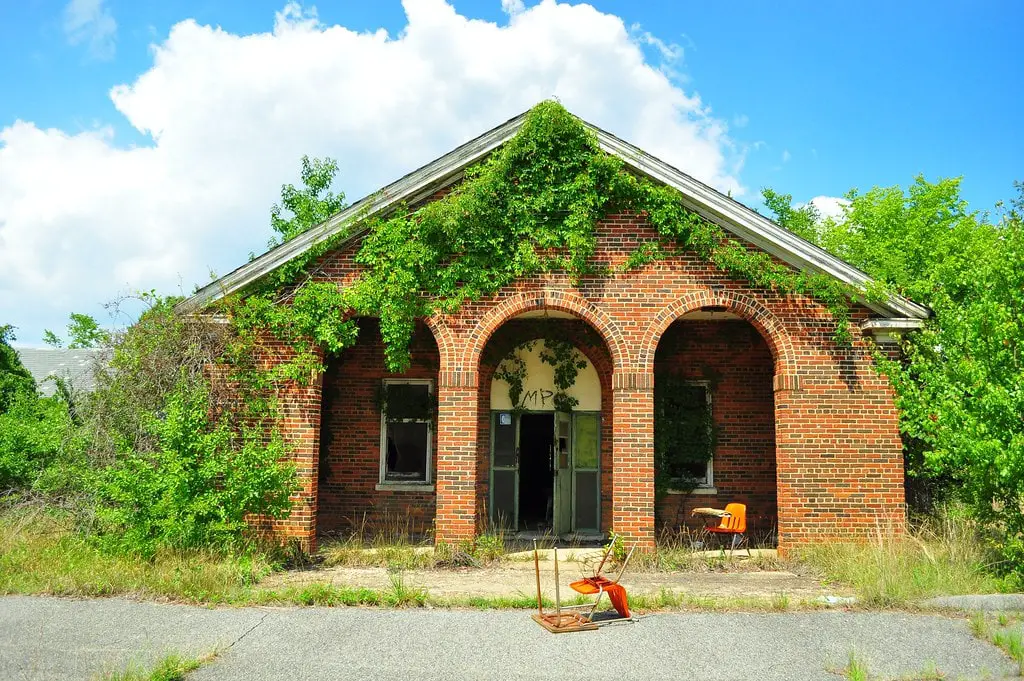Establishment and Early Years
Nestled in the verdant landscapes of Laurel, Maryland, the Forest Haven Asylum opened its doors in 1925, epitomizing a beacon of hope for a society grappling with the challenges of mental health and disability.
The facility, initially an embodiment of modernity and progress, was designed to provide a haven for children grappling with mental illnesses and disabilities, offering them a nurturing environment to learn and grow.
As an institution ahead of its time, Forest Haven stretched across a sprawling 250-acre campus, housing over 30 structures that served as sanctuaries for those marginalized by society.
The institution prioritized imparting life skills to its inmates, fostering community within its walls. The communal farm colony environment provided essential training, creating an emotionally empowering atmosphere for its residents.
Over the years, Forest Haven evolved, expanding its scope to accommodate individuals grappling with non-ID conditions, such as epilepsy. The 1970s marked a significant shift in the institution’s demographic when the closure of a nearby orphanage, “Junior Village,” led to relocating at least 20 children to Forest Haven.
Decline and Abuse
The once vibrant and hopeful Forest Haven began to show signs of decay in the 1960s. Funding cuts coupled with an increasing population burdened the institution, marking the onset of a downward spiral. The community spirit that had once permeated the institution began to fade, replaced by an atmosphere of neglect and apathy.
The dwindling resources and overcrowding led to a drastic shift in the quality of care. Initially trained and qualified, the staff was replaced with less experienced employees. As the team’s frustration grew, it reflected in their interactions with the patients, many of whom faced physical, mental, and sexual abuse.
The institutional neglect took a fatal turn, leading to the deaths of numerous patients due to conditions like aspiration pneumonia, a reflection of medical incompetence.
The institution’s response to these deaths was a grim testament to its decline. The bodies were passed through the basement morgue and buried anonymously in an unmarked field nearby, their identities and stories lost to time.
Legal Action and Closure
The atrocities of Forest Haven did not go unnoticed. Appalled by the state of affairs, families of the victims filed lawsuits against the institution in 1976, an effort that the Department of Justice later joined.
The legal battle shed light on the horrors of the institution, leading to the relocation of many residents to group homes. Despite these actions, Forest Haven continued to operate, its doors finally closing in 1991 by a federal judge’s order.

Aftermath and Current Status
Today, Forest Haven stands as a haunting reminder of its grim past. Though abandoned, the buildings still bear the scars of time – the peeling paint, the rot, and the graffiti, each marking a chapter of the institution’s history. A single headstone stands in the burial field, a sad tribute to the hundreds of inmates laid to rest without ceremony.
Despite its dark history, Forest Haven continues to draw urban explorers intrigued by its notorious reputation. The site, though off-limits and guarded by the police, whispers tales of its past to those who dare to venture close.
Carelessly dug and left to the mercy of the elements, the shallow graves have begun to reveal they are unfortunate occupants, the erosion unearthing the grim secrets buried within.

Forest Haven in Cultural Memory
Forest Haven’s legacy is a poignant reminder of the dark side of institutional care. Once a symbol of progress and hope, it evolved into a site of neglect, abuse, and death.
Media portrayals, including the Abandoned America Podcast, have brought the haunting tale of Forest Haven to a broader audience, unearthing the darkest facets of institutional abuse and neglect.
The tale of Forest Haven is not just a story of an institution; it’s a reflection of society’s attitude toward its most vulnerable members. It serves as a stark reminder of the consequences of negligence, prompting introspection and demanding accountability.

Conclusion
With its mix of hope, decline, and ultimate horror, Forest Haven Asylum offers a unique perspective on the history of mental health care in America. Its story underlines the importance of constant vigilance, compassion, and appropriate funding in treating mental health and disability.
While the buildings may crumble and the memories fade, the legacy of Forest Haven remains a haunting testament to a dark chapter in American history. The story of Forest Haven in Laurel, Maryland, is a call to action, reminding us of the need to provide compassionate and competent care to society’s most vulnerable.
